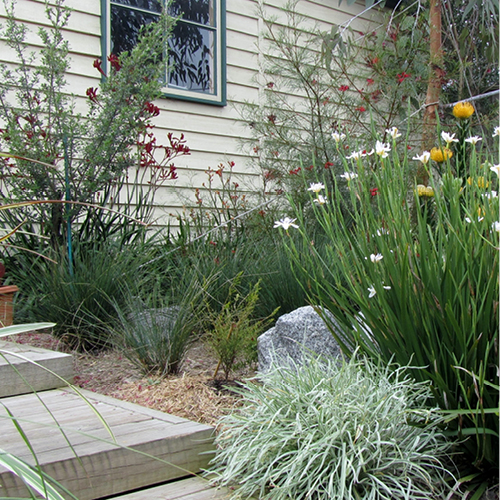From winter crops to a weed swap, there’s plenty to keep you busy in the garden.
With the cooler weather upon us, now is the perfect time to plant hearty winter vegetables for your home cooking, as well as tackling seasonal jobs that will help ensure a sustainable and abundant garden all year round.
Plant winter food crops
- Brassicas such as broccoli, brussel sprouts, cabbage, cauliflower, collard greens, kale and turnips are ideal winter crops.
- Leafy greens such as spinach, silverbeet and mustard greens also like the cold weather.
- Root vegetables such as garlic, spring onions, carrots, beetroot, potatoes, leek and onions can do well too.
- Herbs such as coriander thrive in cooler conditions and are a popular option if you’re short on space or live in an apartment.
- Bare-rooted trees such as deciduous exotics and fruit trees including apples, pears, plums, peaches and nectarines should be planted now.

Mulch your beds
Choose sustainable, low environmental impact mulch for your vegie, herb and ornamental beds that will enrich your soil as it breaks down. Keep in mind that mulch that has been transported a long way – such as sugar cane mulch – has a high carbon footprint.
Prune dormant plants and trees
This is the time of year to prune deciduous fruit trees (just not your apricot tree which should only be pruned in spring or late autumn). Correct pruning encourages good shape, promotes growth and helps stop disease from taking hold.
Remove environmental weeds
Environmental weeds are often common garden plants that invade natural bushland and displace local plants and animals. They compete with local plants for light, nutrients and water, and provide poor habitat for wildlife. Winter is a good time to remove these weeds from your garden and replace them with indigenous plants. To help, we’re running an environmental weed swap.
Our environmental weeds booklet has information on the most serious environmental weeds currently threatening local biodiversity, and how you can identify, remove and replace them.
How to get involved
To get involved, simply email us a photo of the weeds you’re planning to remove, and we will send you a voucher for 10 indigenous tubestock replacement plants.
More information
For more information or to participate in our weed swap, email [email protected]
To view our environmental weeks booklet, visit our Sustainability page.